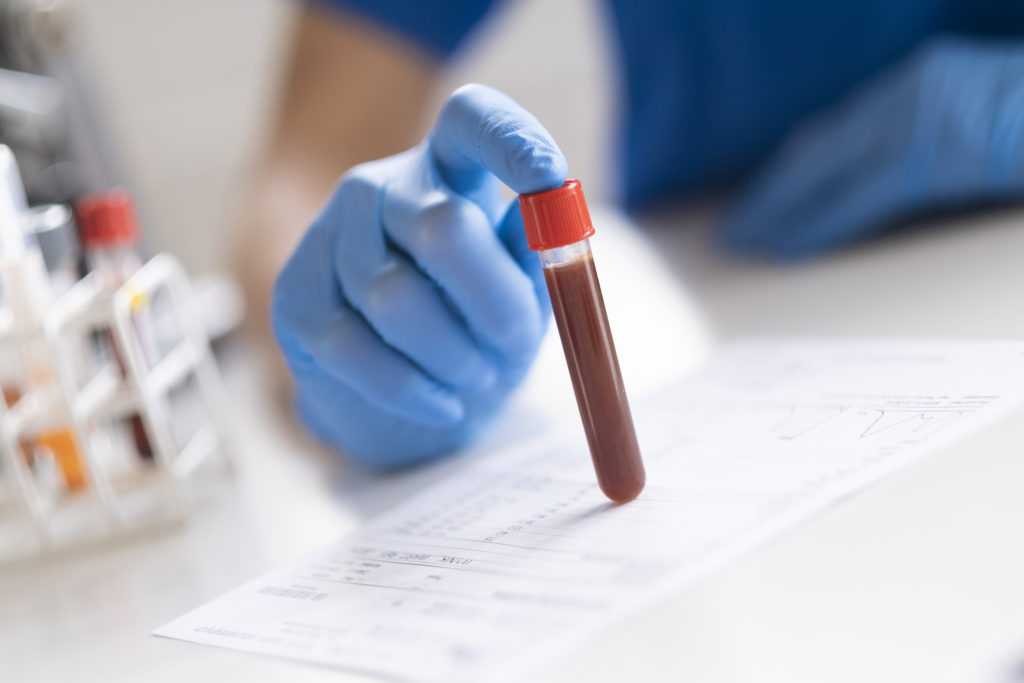Is there a connection between blood infections and colorectal cancer?
03 May, 2020

New research has found a link between blood infections due to anaerobic bacteria and colorectal cancer. This finding may help with future cancer screenings.
A recently available study has concluded that anaerobic bacterial blood infections are connected with an increased threat of developing colorectal cancer.
The study, that your researchers will present at the 2020 European Congress of Clinical Microbiology and Infectious Diseases, can help clinicians better screen for colorectal cancer.
Colorectal cancer and bacterial infections
Colorectal cancer occurs in the colon or the rectum. Based on the Centers for Disease Control and Prevention (CDC), it's the third most common kind of cancer in the United States. Around 90% of cases occur in persons aged 50 years or older.
And also age, risk factors add a genealogy of colorectal cancer, some genetic syndromes, obesity, a lack of exercise, a diet lower in fruit and veggies, and inflammatory bowel disease.
Anaerobic bacteria, unlike aerobic bacteria, usually do not require oxygen so that you can function. They certainly are a normal part of the human body, existing in a variety of locations, including the gut.
They usually usually do not cause infections, however when they do, it really is most often in the area that the bacteria inhabit.
The authors of the new study remember that previous research had linked specific types of anaerobic bacteria with colorectal cancer. The researchers wished to further explore this link through a large-scale study.
Over 2 million participants
The study occurred in two regions of Denmark between 2007 and 2016. It involved over 2 million participants.
For the analysis, the team gathered data on 45,760 blood infections, including info on the kind of pathogens present in the participants’ bloodstreams.
The authors then compared these details with data from the Danish Colorectal Cancer Group Database. Specifically, they looked for new cases of colorectal cancer, especially the ones that developed carrying out a blood infection from the bacteria already associated with colorectal cancer.
Of the 45,760 persons who had a bacterial blood infection, 492 (1.1%) later developed colorectal cancer. Of the, 241 (0.5%) were within the first year of the bacterial blood infection.
The researchers matched each one of these persons by age and sex to a control group of five people who hadn't had a blood infection.
Significantly higher threat of cancer
The study authors discovered that anaerobic bacterial blood infections were connected with a significant upsurge in the chance of colorectal cancer.
For example, those who had a Clostridium septicum infection were 42 times much more likely to develop colorectal cancer within the next year.
Only 0.5% of the control group, who had not had a infection, developed colorectal cancer, compared with 20.8% of these who had a C. septicum infection.
As the analysis authors conclude in their paper: “In this large scale cohort study, it had been discovered that, in [people] with blood infections due to selected anaerobic bacteria, the chance of developing colorectal cancer was increased by up to 42 times weighed against [people] with blood infections due to aerobic bacteria such as for example [Escherichia coli] or [Staphylococcus aureus] or negative controls.”
“The discovery of blood infections with certain anaerobic bacteria may potentially lead to a recommendation of screening for colorectal cancer in selected [individuals].”
Study co-author Dr. Ulrik Justesen, from Odense University Hospital in Denmark, notes that although there was a clear link between anaerobic bacterial infections of the blood and colorectal cancer, it had been not yet determined what the causal relationship was between them.
In Dr. Justesen’s words: “At this stage, we are not sure if the bacteria are directly triggering cases of colorectal cancer, or if the blood infection with these bacteria is itself due to the cancer. It’s a good example of the question ‘Is this the chicken or the egg?’”
Looking ahead, Dr. Justesen and team want to gain greater detail on bacteria in persons with cancer.
He says: “Our follow-up research of the study will give attention to the precise bacteria from [people with cancer] to see if we can identify specific characteristics that may be implicated in cancer development. If this is actually the case, it may be of great importance when it comes to screening and treatment of colorectal cancer.”
This may imply that screening for colorectal cancer could be far better. According to Dr. Justesen, “In relation to screening, if we saw these risky bacteria in combo with advanced age, then it could definitely be worth screening the [person] for colorectal cancer.”
Although the email address details are interesting, this research is awaiting presentation at a scientific conference. Therefore, details about the entire methodology and email address details are not yet available.
The researchers have not yet written a complete paper, and the results have not been through peer review. For this reason, it isn't possible to scrutinize the findings completely.
Source: www.medicalnewstoday.com
TAG(s):
